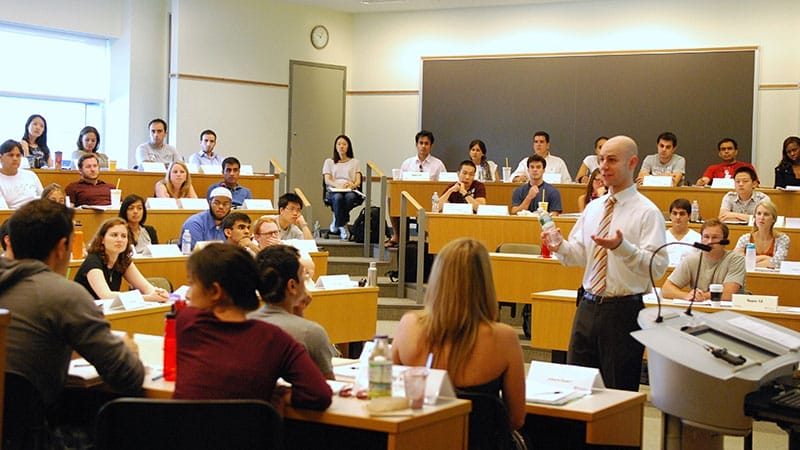When I started my freshman year, it seemed like everyone else had it all figured out. They knew what classes they were taking in the Wharton curriculum, what they were concentrating in and what they wanted to do after graduation. I, on the other hand, had no idea what clubs I was joining … let alone what my plans would be five years into the future. Needless to say, I was initially overwhelmed by how much I thought I didn’t know about business and felt unsure about the classes I picked. How did I know I was studying the right thing?
That attitude definitely changed after I finished my first semester. I found myself looking back on the anxieties I had in the first few weeks and realizing that I had absolutely no need to worry. I took advantage of the add-drop period to try out different classes and find what I liked best. I relied on the core courses in the Wharton curriculum as a backbone—introductions to statistics, operations, finance and accounting—and felt much more secure about being on track and learning the same foundational knowledge as all the other Wharton students. I found out that a concentration is only four classes, and if I wanted to create my own concentration, I could.
I can look back to my first-semester, freshman-year self and tell her that I still don’t know what I am going to concentrate in for sure or what I am going to do after graduation, but it’s going to be OK because I have the time and flexibility to figure it out.
Knowing that I’m not missing out on any core knowledge has given me the confidence to pursue classes I genuinely enjoy outside of Wharton and that might not be 100 percent relevant to my business degree. I dabbled in an introductory computer science class for a few weeks before realizing it was not for me. I’ve written several essays on U.S.-China relations and the Iran nuclear deal in my American foreign policy class, and this semester I get to spend several hours each week expanding my mind (and my own understanding of my mind) in introductory philosophy and psychology classes.
I feel my horizons broadening as I think about big questions and international politics in addition to the smallest details of code.
Many of my friends have done the same with the Wharton curriculum—moving beyond balance sheets and income statements into the worlds of Italian cinema, urban planning and art history.
Who knew that there were so many options? I certainly didn’t when I was admitted into the Wharton Undergraduate Program. I am learning every day the extent to which I can pursue knowledge and interests beyond the core.
Now, my conversations with people who seem to have their whole lives planned out don’t intimidate me. Instead of feeling overwhelmed, I ask them about their favorite classes both in and out of Wharton. I take comfort in the fact that nothing is set in stone quite yet.
I plan on becoming an even more well-rounded person by studying what I truly don’t know, like nutrition or Arabic singing. My options at Penn are endless. I recognize that the knowledge I need to become successful is not confined to a classroom in Huntsman Hall but rather found in the classes I will take across the University; in the conversations I have with people I meet; and in my experiences, struggles and successes.
I am developing my plans for concentrations and future careers with this in mind. It is easy to get caught up in the business world and lose sight of the larger world beyond it, forgetting that they are really one in the same. I know that to take the best of my Penn experience and combine it with my business education from the Wharton undergraduate curriculum is what it truly means to be a Wharton student.
Editor’s note: The original version of this post first appeared on Wharton Undergraduate Program’s Student Voices blog on Oct. 8, 2015.
























